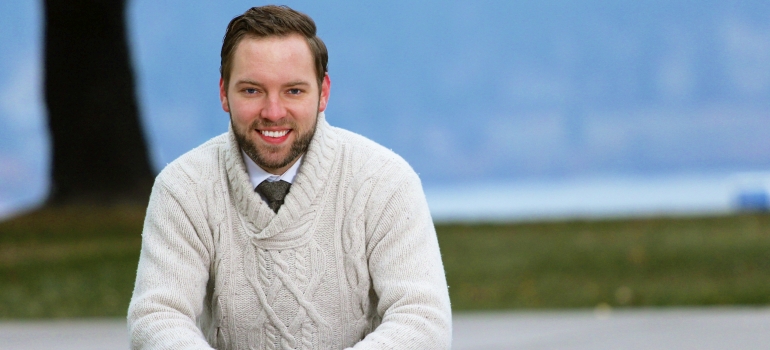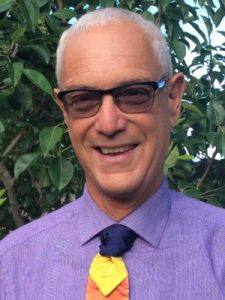Warren Brock
Communications Manager
Centre for Chronic Disease Prevention and Management, Southern Medical Program
Office: Reichwald Health Sciences CentrePhone: 250.807.8601
Email: warren.brock@ubc.ca
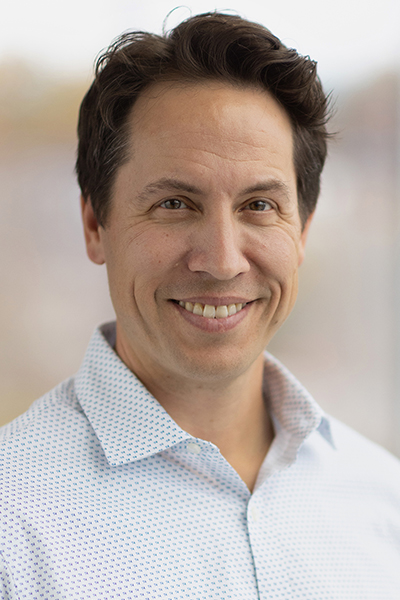
As the new academic year begins, we caught up with some of our Southern Medical Program (SMP) students heading back to the lecture theatres and hospital bedsides. Here’s one of our Q&As with Hannah Duyvewaardt:
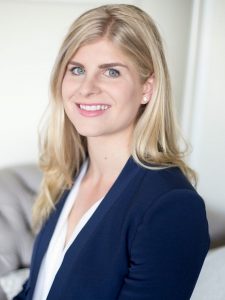 Hannah Duyvewaardt, 4th Year SMP student
Hannah Duyvewaardt, 4th Year SMP student
What inspired you to pursue medicine?
I wanted to have the skills and the knowledge to help people live the healthiest life possible, by either treating illness or preventing disease.
What am I looking forward to most for the upcoming year?
Fourth year is an amazing opportunity to explore Canada while increasing your exposure to specific areas of medicine. I am really excited for my northern rotations to experience the difference of providing healthcare in rural communities.
Best piece of advice:
Don’t be afraid to change your mind. I was 100% on a specialty until I finally recognized family medicine was the perfect fit for me.
What superpower do you wish you had?
No need for sleep!
Where would I like to get lost?
Somewhere with sand, surf and sun. Bali would do!
The Southern Medical Program is looking for female volunteers to help teach second-year medical students how to perform gynecological and breast exams.
These volunteers, known as Female Clinical Teaching Associates (FCTAs), are trained to be both instructor and patient during these sensitive physical exams. Together with a physician tutor, FCTAs help a small group of students develop a comfortable communication style and the techniques required to conduct an effective examination. FCTAs will participate in two or three exams per teaching session, and must support students in a highly professional manner.
Females interested in training as FCTAs must be comfortable with their bodies, since these intimate examinations may involve mild physical discomfort. Suitable candidates will learn related anatomy, medical terminology, and exam techniques; have strong communication skills; and provide effective feedback.
FREQUENTLY ASKED QUESTIONS
What kind of training will I receive?
You will become a confident and certified FCTA through our intensive training session, which covers anatomy, medical terminology, physician-patient communication, and physical exam skills. You’ll participate in team-building exercises, group workshops, and hands-on curriculum practice.
Will I be examined by both male and female students?
Yes. It is important that an FCTA works with medical students, regardless of their sex or gender, to improve their technique and communications skills, and to ensure they deliver a proper examination.
What if I’m not feeling comfortable at any point?
Please let us know immediately. Your well-being is our priority, and so is your privacy—all SMP faculty and students are bound by the Canadian Medical Association Code of Ethics, meaning your information is kept confidential.
When and where will I be needed?
All sessions are held at Clinical Academic Campus at Kelowna General Hospital. Physical exams occur in the fall term (September – October). An FCTA must have a flexible schedule to accommodate morning sessions.
Will I be paid?
FCTAs are paid for the training sessions and for each exam session.
Who to contact?
If you are interested in participating or would like more information, please contact the Shaun Bos, Patient Programs Educator at shaun.bos@ubc.ca or 250-980-1341.
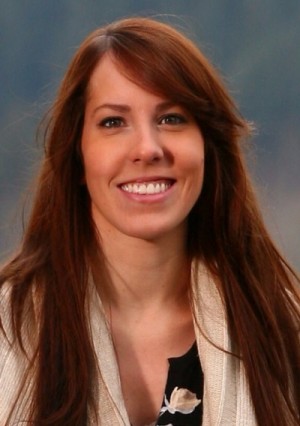 Dr. Alexandra Bond
Dr. Alexandra Bond
Southern Medical Program Class of 2015
Internal Medicine Resident PG-Y3, UBC, Vancouver
Tell us about your training
Internal medicine encompasses the non-surgical management of a variety of different disease states involving any of the organ systems. As a resident in Internal Medicine, our program is structured into one month blocks, during which we rotate through the various subspecialties (Cardiology, Intensive Care, Oncology, Rheumatology, Nephrology, Endocrinology, Hematology, Respirology, Palliative Care, Addictions Medicine, and Gastroenterology) and core General Internal Medicine/Clinical Teaching Unit Electives. A typical day includes rounding on all patients admitted to the hospital under your respective service (around 20 patients, more or less) as well as seeing any new consults throughout the day. Residents are given full responsibility for structuring the care and management of all their patients, under the guidance and supervision of the attending physician.
What attracted you to a career in medicine?
Medicine is a fascinating combination of human interaction and problem solving; a career in which communication and strong interpersonal relationships are vital, along with the skill set to gather important data and synthesize evidence-based medical knowledge to decipher each unique clinical case. I was intrigued by the art of medicine and determining how the application of medical knowledge pertains to the wishes, and expectations of each individual patient. To have the opportunity to make a meaningful contribution to the lives of others, not just through medical interventions alone but by listening to their concerns and hearing their diverse stories, appealed to me. Medicine is also a rapidly developing field of science and research. Each day is a new learning experience where exciting discoveries are made, and the learning continues throughout your career whether you are a medical student, resident, or staff physician.
Today in healthcare it’s important to…
Remember that you are treating a person, not just a disease. So often in medicine we lose sight of the fact that we are working with people at their most vulnerable moments in life, in an environment that is entirely foreign and intimidating to them. Patients have a justified need to be heard and informed every step of the way throughout the diagnosis and treatment of their medical illness. As health care practitioners, our job goes beyond solving the medical mysteries and providing the best evidence-based treatments. Medicine is not just a science; it’s an art. Attentiveness to detail, taking into account every unique patient case and the individual determinants of health that contribute to each distinct illness script, combined with good patient care and respect for the innate desire for people to feel well-informed and empowered in their medical care, encompasses the art of medicine.
What is the best professional advice you received?
“Be kind to people” and “Sometimes all patients need is a warm blanket.” A certain Emergency Medicine staff told me this on day 1 of medical school. I think it resonated with most people in our class. Being kind to your colleagues, other health care practitioners, and patients will make your work life exponentially more enjoyable by strengthening communication, collegiality, and cohesiveness in a positive work environment. Furthermore, the second quote is testament to the fact that oftentimes we cannot cure people of their disease, but we can offer them support, respect, and reassurance that we will continue to ensure their comfort and autonomy.
What is your favourite UBC Faculty of Medicine memory?
My favourite memory of the Southern Medical Program is working with all the great faculty members, physicians, and administrative staff. Everyone is incredibly supportive, which makes the steep learning curve all the more easy to climb. It is a rare experience to be able to work one-on-one with staff as a medical student and I am so grateful for all the unique learning opportunities I was able to experience because of UBC’s distributive program. I remember multiple instances where staff physicians from other services would find me around the hospital to teach me about or show me a unique case they had. As a junior learner, it made me realize how much the staff really care about trying to create the best hands-on learning environment and experiences possible, even if you aren’t even on their particular service!
What advice to you have for current medical students?
Be enthusiastic and keen to learn. It’s good to recognize the areas of medicine you are passionate about, but keep an open mind and your knowledge base broad. You have no idea how much it will help you once you are a doctor. Also, be kind to people.
Bucket list item?
In life? To fly a helicopter one day.
The Southern Medical Program Excellence (SMP) Awards recognize faculty, staff, tutors, and mentors for their exceptional contributions to medical education across the program’s education sites. The entire award process including nomination and selection is completely undertaken by SMP students. On behalf of the SMP, congratulations to the 2017 honourees and thank you for your esteemed contributions to medical education for our students.
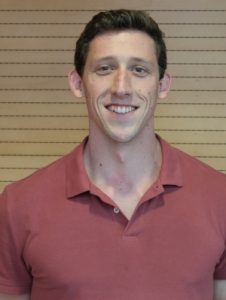 Year 1 Southern Medical Program Excellence Award
Year 1 Southern Medical Program Excellence Award
Matt Daalder, Lab Assistant, Southern Medical Program
Matt Daalder is the lab assistant for the SMP and assists with the gross anatomy, histology, and neuroanatomy labs for first and second year students.
Matt was acknowledged for his love of teaching and his creative ways to help students remember complicated anatomy. Matt consistently goes out of his way to offer support and is always willing to spend extra time with those students looking to take their knowledge to a higher level.
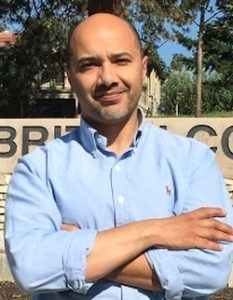 Year 2 Southern Medical Program Excellence Award
Year 2 Southern Medical Program Excellence Award
Dr. Ahmad Alshrbini, Adjunct Professor, Southern Medical Program
Dr. Ahmad Alshrbini is a case-based learning tutor and FLEX (flexible and enhance learning) course advisor for first and second year students.
Students consider him as an incredibly knowledgeable tutor, positive mentor, and excellent facilitator of group discussions. Dr. Alshirbini is incredibly supportive and goes above and beyond his responsibilities to effectively inform and guide students in their tasks and learning goals.
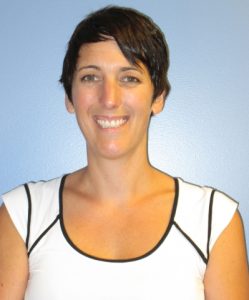 Year 3 Southern Medical Program Excellence Award – Kamloops
Year 3 Southern Medical Program Excellence Award – Kamloops
Dr. Amy Thibeault, Clinical Instructor, UBC Department of Psychiatry
Dr. Amy Thibeault is a psychiatrist and preceptor with the SMP’s Kamloops Clerkship Program based at Royal Inland Hospital.
She is recognized for her exceptional teaching and ability to continually provide genuine, objective, and honest guidance. Dr. Thibeault also demonstrates great communication skills with patients and staff helping students to learn how to effectively interact with everyone in the hospital setting. Students cannot help but feel constantly engaged and interested in the field of psychiatry.
Year 3 Southern Medical Program Excellence Award – Kelowna
Dr. Steven Finkleman, Clinical Assistant Professor, UBC Department of Family Practice
Dr. Steven Finkleman is a pediatrician and preceptor with the SMP’s Kelowna Clerkship Program based at Kelowna General Hospital.
He is acknowledged for his interactive and engaging teaching sessions and taking extra efforts to ensure students have a good grasp of common pediatric conditions. Students greatly appreciate his dedication to teaching core pediatric principles which ultimately helps them succeed in both their pediatric rotation and future practice.
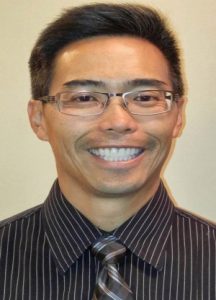 Year 3 Southern Medical Program Excellence Award – Vernon
Year 3 Southern Medical Program Excellence Award – Vernon
Dr. Brian Chai, Clinical Assistant Professor, UBC Department of Medicine
Dr. Brian Chai is an internist and preceptor for the Vernon Integrated Community Clerkship (ICC) program based at Vernon Jubilee Hospital.
He is highly-regarded for optimizing learning sessions during the internal medicine rotation for Vernon ICC students. Dr. Chai continually makes the effort to turn every clinical encounter into a learning experience, whether it’s in the office, endoscopy, or intensive care unit. He demonstrates a true enthusiasm for teaching and spends extra time working with students to hone their skills.
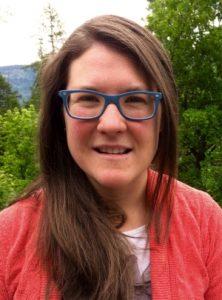 Year 3 Southern Medical Program Excellence Award – Trail
Year 3 Southern Medical Program Excellence Award – Trail
Dr. Anne Davies, Clinical Instructor, Department of Family Practice
Dr. Anne Davies is a family physician and primary family practice preceptor with the Trail ICC program based at Kootenay Boundary Regional Hospital.
She is acknowledged as an irreplaceable mentor for Trail ICC students, a fantastic teacher, and for continually fostering a safe learning environment. Dr. Davies consistently takes the time to teach and ensures students have the same educational opportunities as they would in larger centres.
 2017 Southern Medical Program Graduating Class Award
2017 Southern Medical Program Graduating Class Award
Dr. Olusegun Oyedele, Course Director and Senior Instructor, Southern Medical Program
Dr. Olusegun Oyedele leads the teaching of first and second year SMP students in anatomy, embryology, neuroanatomy, and histology in addition to serving as SMP Course Director for the Foundations of Medicine course.
The graduating SMP Class of 2017 recognized him for his extraordinary teaching efforts during their first two years of medical school. Dr. Oyedele is always willing to invest extra time to review learning objectives and presents concepts in a teaching style that allows student to retain the information for the long-term.
 Dr. Kasia Wieckowski
Dr. Kasia Wieckowski
Southern Medical Program Class of 2015
Rural Family Practice Resident PGY2, Lethbridge, Alberta
Tell us about your current training
As a rural family practice resident, my day typically includes a little bit of everything. When not on a specialty rotation, I start my day rounding on my inpatients and performing small day procedures (e.g., biopsies, Vandenbos procedure, and other excisions). I then spend the rest of the day in clinic seeing patients. Every fourth day, I am on call and manage the rural emergency department of the hospital I am working at. When not in clinic I do obstetrics, surgical assist, or work with the GP anesthetist.
Today in healthcare it’s important to…
Listen to your patients, particularly when you’ve had a long complicated day and are exhausted.
The best professional advice I ever received
Is to be present. When you’re at work – work hard and focus. But when you go home, put work aside and be present with your family and friends. The latter is sometimes hard to do.
Favourite memory of the Faculty of Medicine
Looking at the smiling faces of my SMP classmates on graduation day. Every one of us was there and we were all just a little bit smarter and wiser for the past four years of training.
Advice for current medical students
If I were to give one piece of advice to incoming students it would be to not forget who you are at your core. Medicine challenges you in ways that you would not anticipate and it’s important to not loose sight of who you are.
Bucket list item
If I were to have one bucket list item, it is to never have a bucket list. I hope to do everything as soon as the opportunity presents itself because who knows what the future holds.
 The UBC Faculty of Medicine Department of Surgery acknowledged Dr. Maureen Leia-Stephen, Kamloops surgeon and Clinical Instructor with the H. Rocke Robertson Award for Excellence in Undergraduate Surgical Teaching. The annual award spotlights a UBC clinical faculty member for outstanding teaching contributions to the MD Undergraduate Program as regarded by medical students.
The UBC Faculty of Medicine Department of Surgery acknowledged Dr. Maureen Leia-Stephen, Kamloops surgeon and Clinical Instructor with the H. Rocke Robertson Award for Excellence in Undergraduate Surgical Teaching. The annual award spotlights a UBC clinical faculty member for outstanding teaching contributions to the MD Undergraduate Program as regarded by medical students.
In addition to her teaching, Dr. Leia-Stephen serves as the surgery rotation lead for the Southern Medical Program’s Kamloops Clerkship Program since its beginning in 2012. She proficiently oversees the surgery rotation scheduling, orientation, and exam preparation for all third-year Kamloops clerkship students. Dr. Leia-Stephen continues to be recognized as an exceptional preceptor and mentor for students training at Royal Inland Hospital.
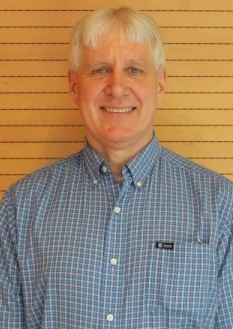 The Southern Medical Program is pleased to announce the appointment of Dr. Kevin Oswald as the new Clinical Skills Co-Course Director based at the Clinical Academic Campus at Kelowna General Hospital. Dr. Oswald practices family and hospitalist medicine in Vernon and is a clinical instructor with the UBC Department of Family Practice.
The Southern Medical Program is pleased to announce the appointment of Dr. Kevin Oswald as the new Clinical Skills Co-Course Director based at the Clinical Academic Campus at Kelowna General Hospital. Dr. Oswald practices family and hospitalist medicine in Vernon and is a clinical instructor with the UBC Department of Family Practice.
Dr. Oswald completed his medical degree and family medicine residency at Queen’s University in Kingston followed by further training in oncology. Working as a hospitalist for the past three years, he has practiced family medicine for close to 30 years. Dr. Oswald is a fellow of the College of Family Physicians of Canada and member of the College of Physicians and Surgeons of British Columbia.
Dr. Oswald has a keen interest in supporting and growing medical education opportunities in the region. Dr. Oswald also recently served as a Clinical Skills preceptor for first and second year SMP students who have consistently rated his teaching as excellent.
Dr. Oswald will work closely with his counterpart Dr. Brandy Bursey, SMP Clinical Skills Co-Course Director in leading the development and implementation of Clinical Skills courses for first and second year SMP students.
